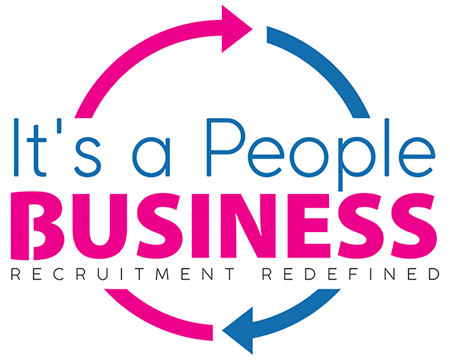
Business owners often face tough decisions when it comes to hiring new employees while staying compliant with legal regulations. Failing to comply with state and federal laws regarding hiring can lead to hefty fines, lawsuits, and damage to a company’s reputation. Therefore, it is essential for business owners to understand the best practices for staying compliant in hiring. In this blog post, we will explore the best practices for businesses to maintain compliance in hiring practices. Understanding and implementing these practices will not only help business owners avoid legal issues but also ensure that they are building a diverse and inclusive workforce. We will discuss key steps such as creating job descriptions, conducting thorough background checks, and avoiding discriminatory practices.
Follow best practices.
Follow best practices.
In addition to legal compliance, business owners need to pay attention to ethical considerations and ensure that their hiring practices promote a safe and respectful workplace. By following best practices for hiring, business owners can attract talented candidates, build a strong reputation, and create a positive company culture. So, if you’re a business owner looking to enhance your hiring process, here are some best practices to keep in mind:
- Ensure that all job postings are accurate and up-to-date.
- Make sure that any application or job description detail is not discriminatory in any way.
- Conduct thorough background checks and reference checks on all potential employees.
- Verify that any potential employees have the necessary qualifications and experience.
- Develop fair and transparent hiring procedures, including assessment tests and interviews.
- Treat all candidates with respect and courtesy during the hiring process.
- Provide a safe and comfortable working environment for all employees.
- Maintain full records of all hiring processes, including job descriptions, applications, and assessment results.
Read More: Mastering Talent Acquisition: Strategies and Best Practices for Recruiting Top Candidates
1. Adhering to anti-discrimination laws during the hiring process
1. Adhering to anti-discrimination laws during the hiring process
Ensuring legal compliance when hiring is essential for all business owners to prevent legal issues and costly penalties. Adhering to anti-discrimination laws during the hiring process is a critical part of staying compliant. All job applicants should be evaluated based on their qualifications, skills, and experience.
Ensure legal compliance.
Ensure legal compliance.
Hiring decisions should be made without discrimination based on race, ethnicity, gender, religion, age or any other protected category. It's equally vital to ensure that job descriptions and requirements are relevant to the job, and the language used appeals to a diverse pool of candidates. Additionally, having a clear hiring process that aligns with legal guidelines and requires records of candidate evaluations and decision-making can help demonstrate compliance and prevent legal issues.
2. Conducting background checks in accordance with applicable regulations
2. Conducting background checks in accordance with applicable regulations

Ensuring legal compliance in hiring is essential for business owners to protect their companies from penalties, lawsuits, and reputational damage. One important aspect of compliance is conducting background checks on job applicants in accordance with applicable regulations. The Fair Credit Reporting Act (FCRA) has specific requirements for employers who use consumer reports, including background checks, in their hiring processes. This includes obtaining written authorisation from the job candidate, using only reputable background check providers, and providing applicants with a copy of the report and a chance to dispute any errors.
Avoid penalties by adhering to guidelines.
Avoid penalties by adhering to guidelines.
Failure to comply with FCRA regulations can result in significant penalties, including fines and legal action. It is crucial for business owners to prioritise staying compliant in hiring by following best practices, which includes conducting legal and thorough background checks on job candidates.
3. Ensuring proper documentation and record-keeping for all candidates
3. Ensuring proper documentation and record-keeping for all candidates

Read More: The Future of Work: Predictions for Online Recruitment in the Next Decade
When it comes to hiring, ensuring legal compliance is crucial for business owners. One key aspect of compliance is ensuring proper documentation and record-keeping for all candidates. This means keeping track of resumes, applications, and any other relevant documents in a secure and organised manner. It's also important to ensure that all documentation complies with applicable laws and regulations. For example, if your business is located in a state or city with Ban-the-Box legislation, you need to remove any questions about criminal history from your job application.
Streamline the record-keeping process.
Streamline the record-keeping process.
Additionally, keeping records of the hiring process can be helpful in demonstrating your compliance with equal opportunity and non-discrimination laws. Overall, meticulous record-keeping and documentation are essential components of staying compliant in hiring, and can help protect your business from legal risks and disputes.
4. Providing equal opportunity to all qualified applicants
4. Providing equal opportunity to all qualified applicants

Ensuring legal compliance in hiring practices is essential for business owners. One of the best practices that should be implemented is the principle of providing equal opportunity to all qualified applicants. Essentially, this means that everyone, regardless of their race, gender, ethnicity, religion, age, or disability status, should be considered for a job based solely on their qualifications for the position. This ensures that no one is discriminated against during the hiring process and that the most qualified candidate is ultimately selected for the job.
Avoid discriminating.
Avoid discriminating.
In order to achieve this, employers need to ensure that their job postings and interview questions are inclusive and that all candidates are evaluated based on objective and job-related criteria. Additionally, it's important to have a clear and transparent hiring process in place to avoid any perceptions of bias or discrimination. By providing equal opportunities to all qualified applicants, businesses can create a more diverse and inclusive workplace and avoid any legal repercussions.
Read More: Mastering the Main Stages of Any Recruitment Discussion: A Practical Guide for Employers
5. Staying up-to-date with changes in employment laws and regulations.

Ensuring legal compliance when hiring is critical for business owners. One of the key steps businesses can take to stay compliant is to stay up-to-date with changes in employment laws and regulations. As legislations and regulations evolve over time, it is important for business owners to understand how they impact their operations and to implement the necessary changes to avoid potential legal complications.
Keep up with the legislations.
Keep up with the legislations.
Failure to stay up-to-date with employment laws and regulations can result in costly fines, legal disputes, and reputational damage. Therefore, staying current with these changes is a foundational step in maintaining legal compliance when hiring new staff. Businesses should establish a system to regularly monitor and update their policies and practices in accordance with the changing legal landscape.
Read More: The Benefits of Working with a Flat Fee Recruiter
Conclusion
In conclusion, staying compliant while hiring is crucial for business owners to avoid legal troubles and ensure a positive work environment. The best practices discussed in this article include researching and following federal, state, and local laws, creating clear and consistent hiring policies, training hiring managers on discrimination and bias, and maintaining detailed records. By implementing these best practices, business owners can foster a fair, diverse, and inclusive workplace while avoiding legal and financial consequences. Being proactive and well-informed is the key to staying compliant in hiring and creating a successful and ethical business. Contact It's a People.Business today to learn how we can help your organisation achieve these goals.
